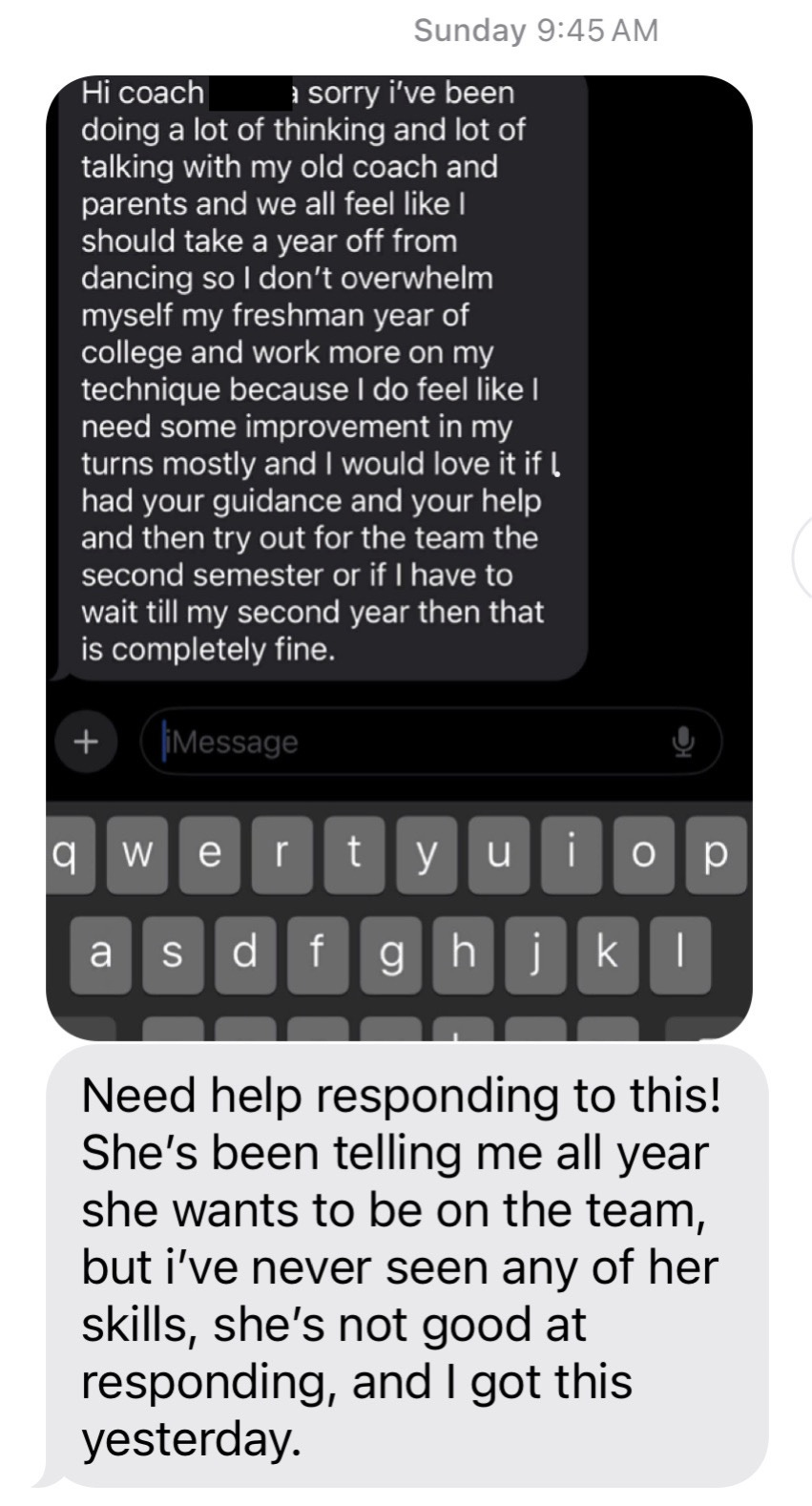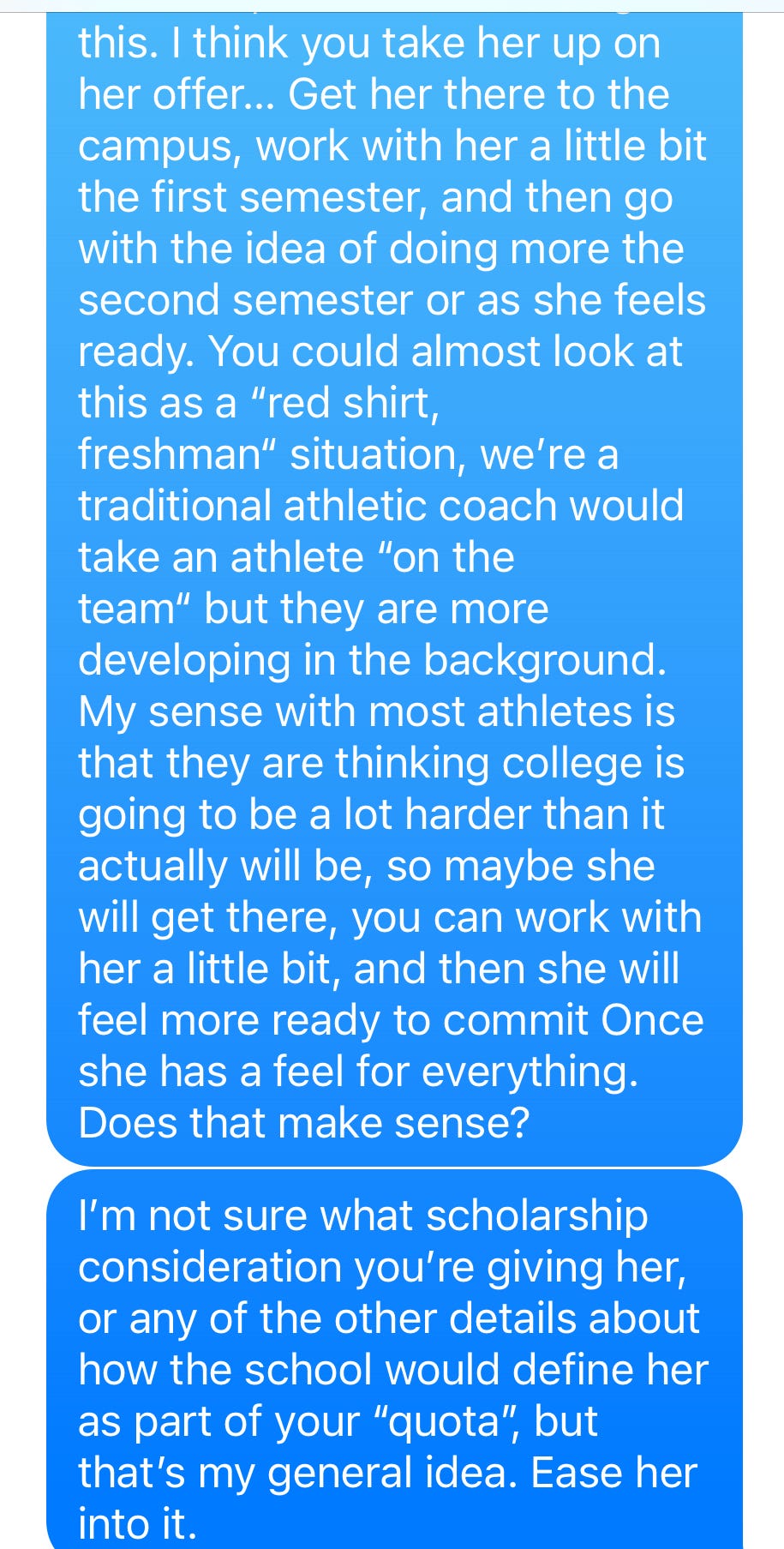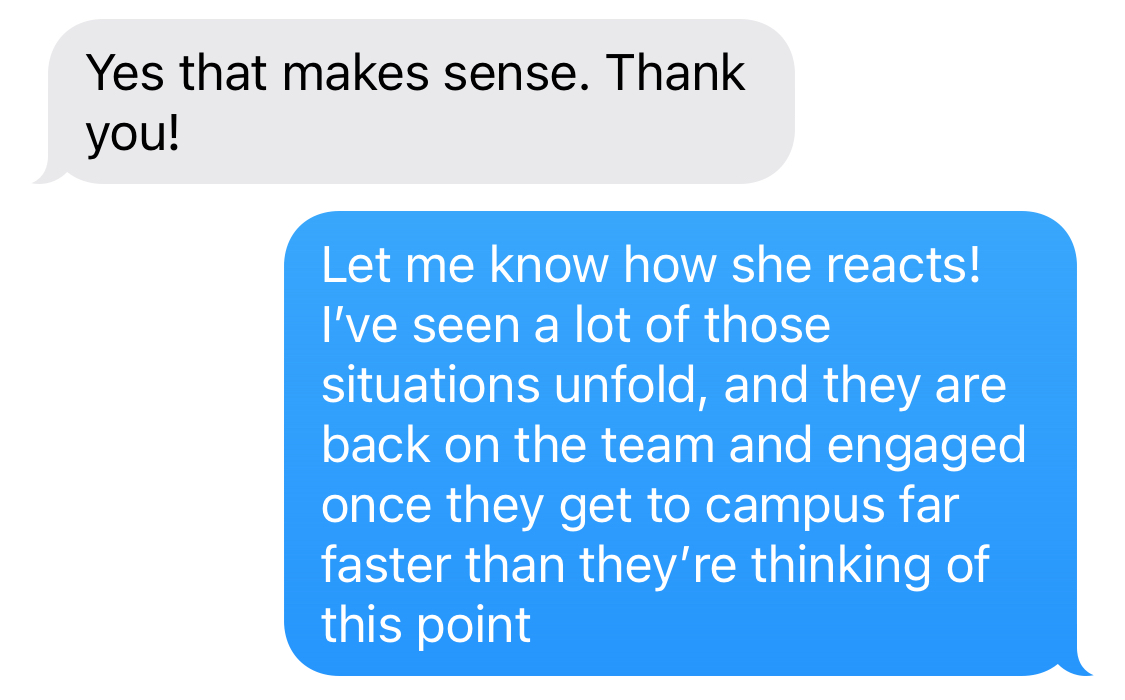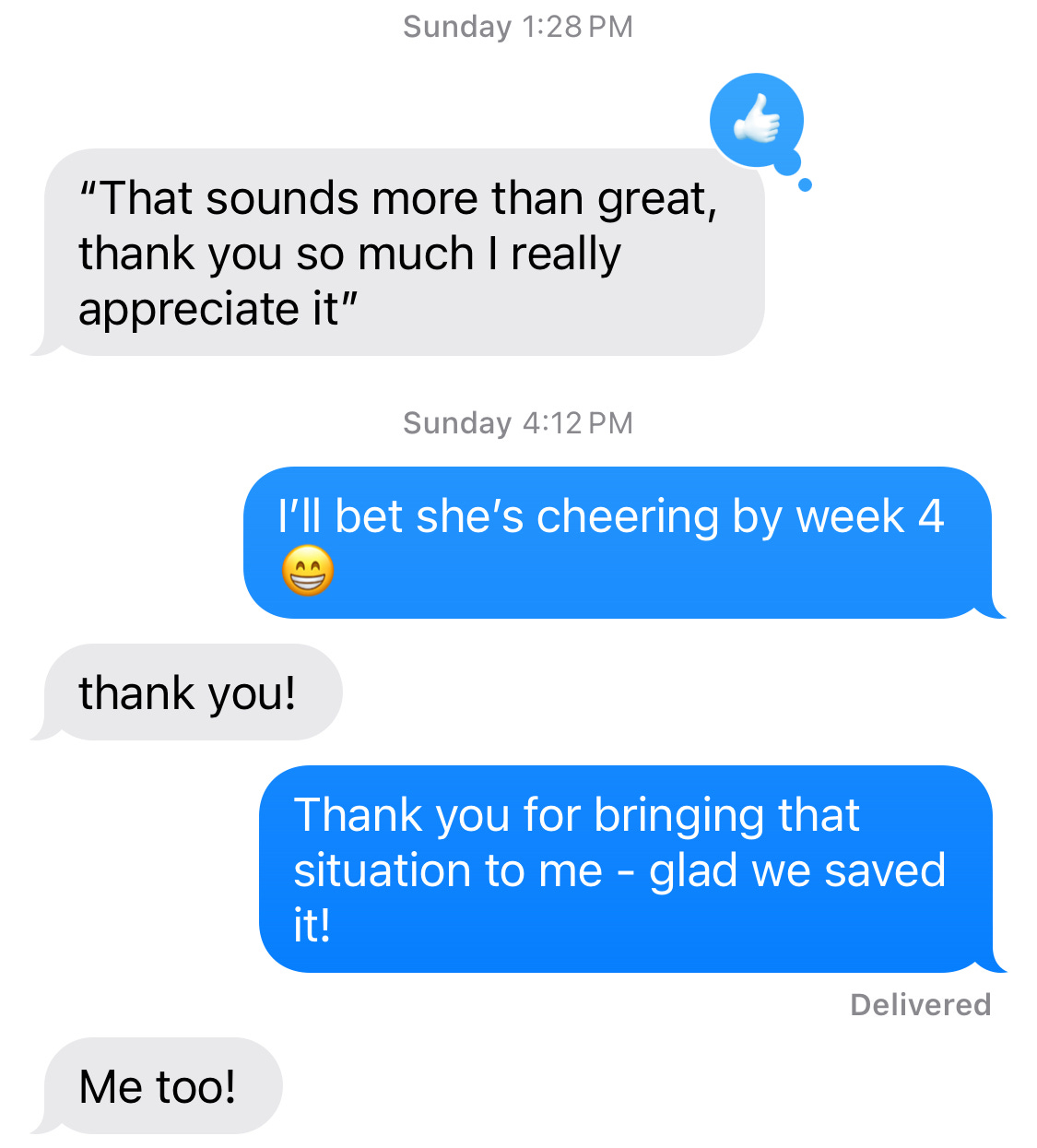Overcoming 'Buyer's Remorse' with Nervous Prospects
One coach was understandably a little panicked when one of her recruits was getting cold feet. Here's how she turned it around, and how you can do the same in the future
Tell me if this sounds familiar, Coach:
Your prospect has been accepted to your college or university, commits to your program, and is locked in to be a part of your team in your next recruiting class.
Then, suddenly and kind of out-of-the-blue, texts or emails and lets you know that he or she is having second thoughts about either their plans to attend your school, or the commitment to be on your team. Or, both.
Sound familiar? It’s becoming more and more of a regular occurance, actually. Nobody is quite sure why, but it can really mess with the balance of an incoming roster, and leave a coach short of their recruiting goals, or just their need to continue to build a great team they’re envisioning.
Which brings us to a coach from an athletic department client we work with, who was experiencing exactly what we’re talking about. Here was the text message the coach forwarded:
So, let’s first dig into the three most common possible “why’s” this prospect is at the point of changing course completely:
The process has ended, and now reality is setting in: It’s time to take your skills as an athlete to the next level, which leaves many prospects feeling overwhelmed with the process they just went through, their decision, and the unknown of the college experience. In short, they’re experiencing ‘buyer’s remorse’.
Imposter syndrome - many rising athletes, leaving high school competition and moving up to the college level, don’t think they have what it takes to be there (even though the college coaches who are recruiting them assure them they do).
Something behind the scenes has changed with them personally, with their family, or the decision to choose a specific college - sometimes based on the cost, and realizing that they may not be able to afford it, or that it’s too far away, or doesn’t fit what they had been hoping for. Many times, family members are contributing to what your rising prospect is feeling, but not always.
In this instance, the athlete gives us an interesting clue that we decided we could strategically use to try and save the commitment. Understanding everything we’ve just gone over with you helped us reach that conclusion, which is why it’s important for you to understand so you can use the approach with your next incoming prospect starting to experience some degree of ‘buyer’s remorse’.
The clue? “I would love it if I had your guidance and your help”, and then try out for the team in the future. That kind of passive-aggressive statement (I don’t want to be on the team, but I want to be on the team) clued us in that she was likely dealing with a little big of Imposter Syndrome, which more athletes deal with than many college coaches realize (don’t let their over-confident social media posts fool you).
Here’s how we directed the coach to take action:
Basically, what we are doing here is agreeing to her idea. It’s fair from the athlete’s point of view… “just work with me and let me try it out, Coach”. In this instance, with this coach, it works. In your next situation, the same solution may not work.
But remember the concept of your prospects - and many of us - needing a ‘money back guarantee’, or something that we can ‘return in 90 days for a full refund’. Rarely do any of us take a company up on the offer, but it’s important for them to offer it because it 1) gives the buyer a feeling of control, and 2) gives the buyer a feeling of assurance that they can change their mind. Buyers rarely do, but sellers (that’s you in this situation we’re talking about, Coach) offer it because it’s now part of our socially accepted buying habit.
Here was the result after the coach texted the athlete using this strategy, starting with what the athlete replied back to the coach:
Success!
Now, does it always end in success? Of course not. Every situation is different.
But the point is, you as the coach should be in control of the situation, and guiding the outcome. Proactive strategic actions are essential when it comes to guiding your prospects in for a smooth landing on campus - athletes who are easy to recruit, athletes that are a challenge, athletes with parents that make you cringe a little, and athletes with imposter syndrome. All of them need your help and guidance to successfully make the transition, regardless of division level, scholarship amount, or athletic ability.
This coach did it, and you can, too.







